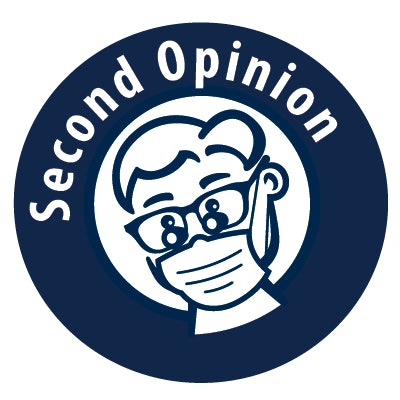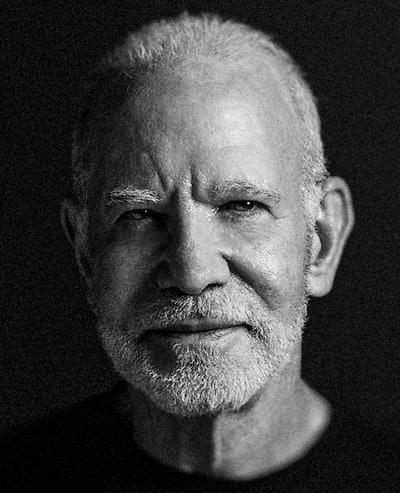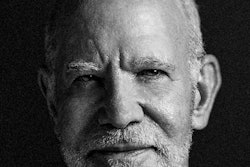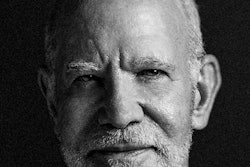
What is noticeably missing from the dental industry is an authentic social responsibility. Social responsibility is when individuals and companies have a duty to act in the best interests of their environment and society as a whole. The key words here for dentistry are "society as a whole." Forty-two percent of the population has little or no access to dentistry -- that's far from the whole.
Social responsibility is simply not a core value in dentistry. Social responsibility is not central to its existence. Social responsibility is not part of its daily conversations or cultural interactions. This is verified by a lack of capital investment, accountability, people, plans, goals, and metrics for expressing greater social responsibility.
 Marc Cooper, DDS, MSD.
Marc Cooper, DDS, MSD.None of the core values of the dental entities I know include a legitimate core value that expresses social responsibility. Without social responsibility as a core of their design, what is the driving design principle of the dental industry and dental practice? The answer is obvious.
Dental practice, and the dental industry, are designed for the dentists' financial success by delivering high-quality dental care to patients who can pay for it, directly or indirectly (third-party or state).
The design is for dentists to succeed in their financial accomplishments. The design occurs up and down the line, from small solo practices to mega-dental service organizations (DSOs). Also, this design is perfectly applicable to investors, vendors, advisers, and suppliers who all are designed to enable the dentists to maximize revenues.
By the way, there is nothing good or bad about this design. It merely is what it is. Rocks are hard. Water is wet. And dental practices are designed to deliver top-quality care for money. But why change the design? Dentistry exists in a for-profit world, which is the ultimate purpose of its design.
If a dentist does better financially, the entire supply chain lights up a little brighter. Everyone in the supply chain cheers for the dentist's financial success. If the dentist is economically prosperous, so is everyone else serving the dentist, internally and externally.
What is not present in dentistry is a genuine social responsibility to act in the best interests of the environment and "society as a whole." About one in five (20%) children ages 5 to 11 years have at least one untreated decayed tooth, and one in seven (13%) adolescents ages 12 to 19 years have at least one untreated decayed tooth. According to recent findings from the U.S. Centers for Disease Control and Prevention (CDC), half of Americans age 30 or older have periodontitis, the more advanced form of periodontal disease. That's approximately 64.7 million Americans.
Dentistry isn't committed to reducing oral disease in the U.S. Reducing oral disease would also reduce its co-conspirator role in a number of chronic diseases. Commitments show up on the calendar and in the checkbook. Everyone in dentistry, look at your calendar and checkbook. My bet is you won't find much if any money and time spent on reducing dental disease in the country.
Yes, dentists are committed to solving their patient's dental problems and esthetic concerns. Yes, dentists contribute to volunteer programs for a few weeks in third-world countries, and dental practices have a few days a year for free dental care. Yes, dentists and their cohorts are committed to their patients' health and well-being. But what about those 137,844,000 million people in the U.S. who can't access dental care. How committed is dentistry to taking care of these people?
Why solo, small groups, or DSOs should consider social responsibility as a competitive advantage
Like it or not, no matter who wins this election, millennials, Generation Zers, and Generation Yers will be the governing generation by 2030. Millennials and their cohorts have a much deeper sense of social responsibility. They are not nearly as profit- or ego-driven as the dentists of today. They think more in the collective. Their way of thinking will reflect who the millennials, Gen Zers, and Gen Yers elect; what kinds of businesses they frequent; who they work for; and the dental practices and dentists they choose.
Future dental employees, patients, and potential associate dentists will come with a much greater social consciousness. They will look for companies and leaders who are socially conscious and who are earnestly trying to do something for "society as a whole."
Admit it, at this time, dentistry lacks social responsibility at its core, so it doesn't manifest itself in dental schools, residencies, solo practices, group practices, or DSOs. Take a look at the big suppliers, the iconic pundits, the continuing education (CE) courses, the YouTube videos, the podcasts, and the publications. When was the last time you saw anything about reducing dental disease in the U.S.?
My recommendation to DSOs is to wrestle with a true expression of social responsibility for your business model. This is where the future is going. The next generation wants to belong to a company that is up to changing the world in some way.
As the author Dean Koontz once said, "The world howls for social justice, but when it comes to social responsibility, you can only hear the crickets chirping."
I am asking you to make some noise!
Marc Cooper, DDS, MSD, is the president of MBC Consultants. Dr. Cooper has worked throughout the healthcare industry during his career, with the majority of his clients being in the dental industry. His current focus is coaching leaders, dentists, and senior executives on how to effectively navigate their organizations and lead their respective teams during this period of tremendous uncertainty.
The comments and observations expressed herein do not necessarily reflect the opinions of DrBicuspid.com, nor should they be construed as an endorsement or admonishment of any particular idea, vendor, or organization.


















